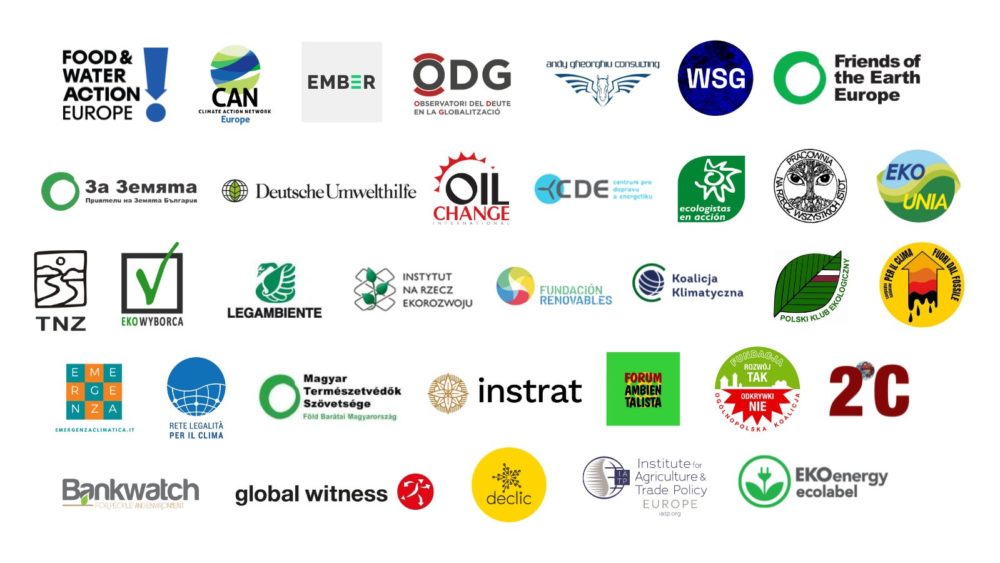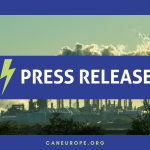20 April 2023, Brussels
Dear Member of the European Parliament,
Methane is the primary component of fossil gas and it has an extremely high global warming potential. There is no possible pathway to limit global warming to around 1.5°C without drastically cutting methane emissions NOW.
The EU Methane Regulation could be a crucial tool to recuperate methane and therefore reduce its emissions in the energy sector, especially as energy-related emissions are the easiest and cheapest to tackle. The IEA’s latest update of the Global Methane Tracker clearly shows that methane emissions continued to rise in 2022 and it would take as little as 3% of fossil fuel industries’ profits to avoid most current methane emissions.
Nevertheless, we are seeing worrying attempts to water down the legislative proposal, which culminated in the adoption of a dramatically weak general approach by the EU Council. The risk is that the arguments and narratives put forward by the fossil fuel industry to dilute the legislative proposal will now find room in the European Parliament’s position. Eurogas, other fossil gas associations, oil companies and the coal industry have repeatedly advocated for the need to weaken the emissions mitigation measures proposed by the Commission. The situation is particularly alarming for coal, as industry and Polish opposition threatens to prevent meaningful action on coal mine methane, which is the largest single source of energy sector methane emissions in the EU. Ahead of the upcoming joint ITRE/ENVI committee vote, it is MEPs’ responsibility to protect people and the planet through the adoption of a bold parliamentary position away from the interests of big oil, gas and coal companies; especially as using competitive existing technology, the same companies could cost-effectively cut 75% of methane emissions.
Moving away from fossil fuels industry lobby requires not only rapid mitigation measures at EU level but also effectively addressing methane emissions from energy imports. Indeed, as the EU is among the largest fossil fuel consumers in the world, and it imports 70% of its hard coal consumption, 97% of its oil consumption and 90% of its fossil gas consumption, our responsibility and leverage goes beyond the EU borders. Most of the methane emissions are released in the upstream segments of the supply chain, and it is therefore essential to extend the regulatory framework on monitoring, reporting, verification (MRV), leak detection and repair (LDAR) and limits on venting and flaring (LVF) across the entire supply chain. Such a decision will create a level playing field so that imported fossil fuels are on the same standards as EU domestic ones. If the EU wants to be a world leader in the fight against climate change, it cannot run the risk of adopting a text which could be weaker than other regulatory instruments under development in Canada, United States and Nigeria.
Acting across the whole energy supply chain is extremely urgent given Europe’s increasing dependence on costly and polluting Liquified ‘Natural’ Gas (LNG) imports. During every step of its life cycle, LNG emits methane emissions, particularly when imported from the U.S., as it is mostly produced by hydraulic fracturing (fracking), a technique widely banned across Europe due to its catastrophic environmental impacts.
As such, we urge you to deliver a methane regulation that extends domestic provisions on MRV, LDAR and LVF to EU energy imports along the entire supply chain. Legal studies have already pointed out that this is feasible, and it is not in conflict with WTO rules.
Finally, we ask you to deliver an ambitious methane regulation that does not serve the interests of the fossil fuel industry but helps to drastically reduce methane emissions while working to implement comprehensive plans to phase out fossil fuels, especially fossil gas by 2035.
Kind regards,
- Enrico Donda, Food & Water Action Europe
- Flora Witkowski, CAN Europe
- Sabina Assan & Conal Campbell, Ember
- Josep Nualart Corpas, Debt Observatory in Globalisation (ODG)
- Veronika Murzynová, Centre for Transport and Energy (CDE)
- Eilidh Robb, Friends of the Earth Europe
- Nikolay Petkov, Environmental Association Za Zemiata
- Andy Gheorghiu, Andy Gheorghiu Consulting
- Charlotte Rose, WeSmellGas
- Marina Gros, Ecologistas en Acción
- Radosław Ślusarczyk, Stowarzyszenie Pracownia na rzecz Wszystkich Istot
- Julian Schwartzkopff, Deutsche Umwelthilfe
- Alicja Barcikowska, Ekowyborca
- Radosław Gawlik, Stowarzyszenie Ekologiczne EKO-UNIA
- Allie Rosenbluth, Oil Change International
- Andrzej Kassenberg, Institute for Sustainable Foundation
- Robert Wawręty, Towarzystwo na Rzecz Ziemi
- Stefano Ciafani, Legambiente
- Steven Vanholme, EKOenergy ecolabel
- Shefali Sharma, Institute for Agriculture and Trade Policy Europe
- Ismael Morales López, Fundación Renovables
- Beata Borowiec, Koalicja Klimatyczna
- Urszula Stefanowicz, Polski Klub Ekologiczny Okręg Mazowiecki
- Renato di Nicola, Per il Clima Fuori dal Fossile
- Angelo Gagliani, Emergenzaclimatica.it
- Michele Carducci, giustiziaclimatica.it
- Matyas Molnar & Alexa Botar, NSC-Friends of the Earth Hungary
- Michał Hetmański, Instrat Foundation
- Simona Ricotti, Forum Ambientalista
- Tomasz Waśniewski, Fundacja “Rozwój TAK – Odkrywki NIE”
- Mihai Stoica, 2Celsius
- Alice Harrison, Global Witness
- Raluca Petcu, Bankwatch Romania
- Catalina Hoparteanu, Declic
READ THE LETTER HERE




